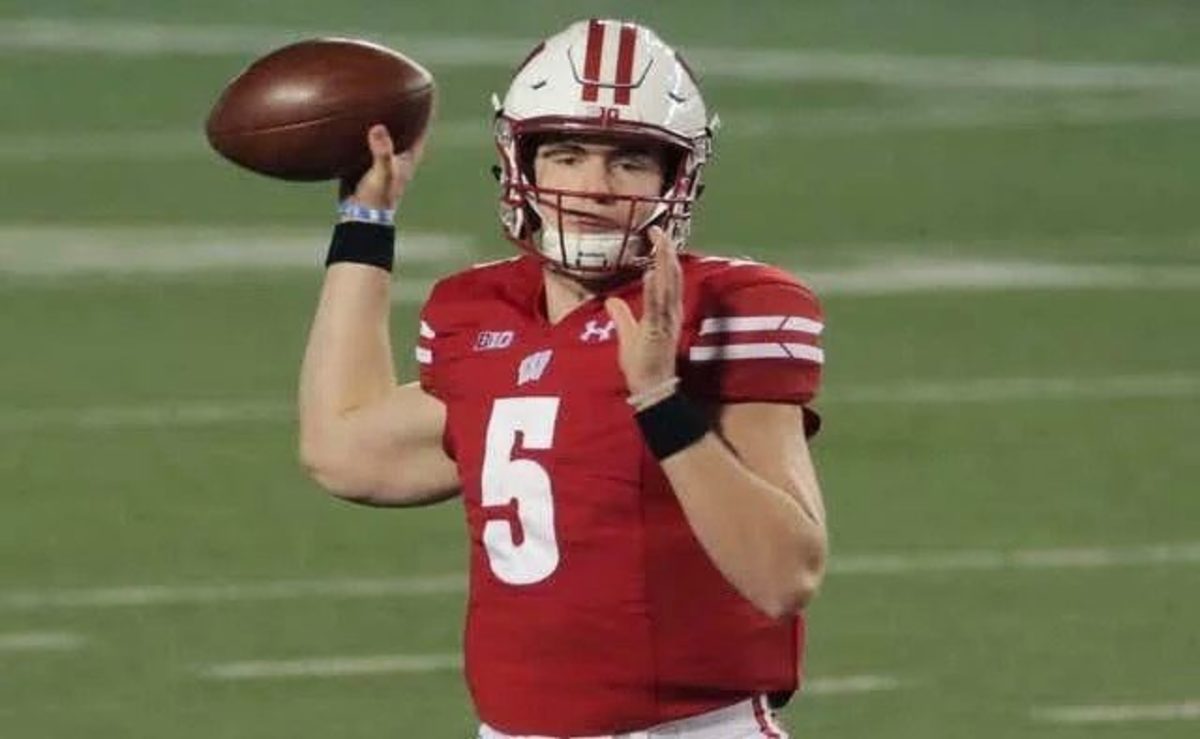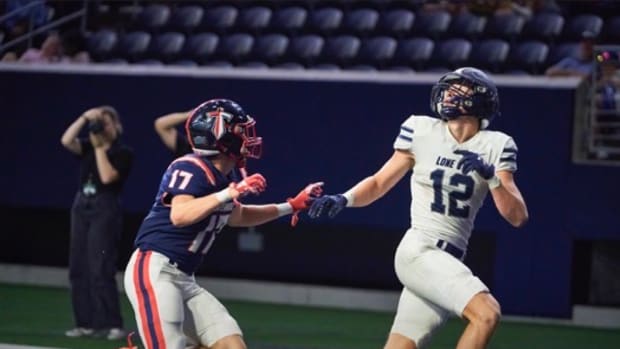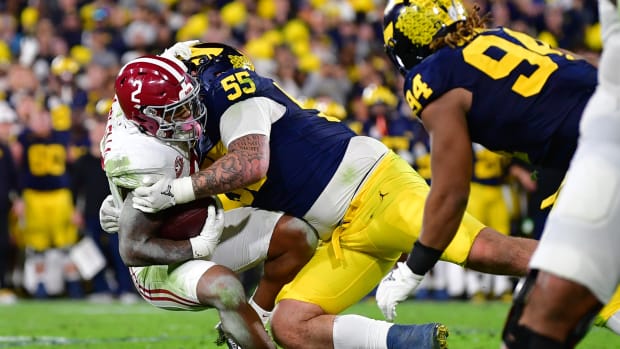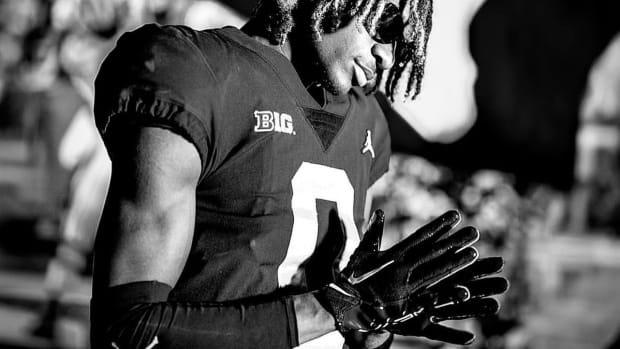Wisconsin Becomes First Big Ten Team To Cancel Game Due To COVID

The Big Ten is only one week into its 2020 schedule, and the conference is already having issues managing COVID-19 as Wisconsin was forced to cancel its upcoming game against Nebraska.
Over the past several days, rumors circulated that Badgers quarterback Graham Mertz could be at the center of a very complicated corona-related situation. Mertz's roommate at Wisconsin, the No. 3 passer on the team's depth chart, tested positive for COVID, just as Mertz did later on. A PCR test was performed on Mertz, and his positive test was confirmed, which ruled him out for the next 21 days in accordance with Big Ten regulations.
Now, if this were an isolated incident, it would not be a huge issue, but that is not the case. The University of Wisconsin confirmed earlier today that 12 members of the program have tested positive, and that includes head coach Paul Chryst.
Because this situation is so widespread among the Badgers, the school issued a statement on Wednesday regarding the move to cancel its upcoming game against the Cornhuskers:
The Wisconsin football team will pause all team-related activities for at least seven days due to an elevated number of COVID-19 cases within the Badgers' program.
The team’s scheduled game against Nebraska on Saturday will not be played.
The joint decision to pause football activities and cancel Saturday’s game was made by Director of Athletics Barry Alvarez and UW-Madison Chancellor Rebecca Blank, in consultation with the Big Ten Conference. The game will not be rescheduled.
“We have said from the beginning that the health and safety of our student-athletes, coaches and staff members comes first,” Alvarez said. “Over the past several days we have seen a rising number of student-athletes and staff contract the virus. The responsible thing for us to do is to pause football-related activities for at least seven days.”
When Big Ten Commissioner Kevin Warren announced the Big Ten's 8+1 schedule, it was clear that the conference had zero room for error. All nine games would need to be played in repetition, and there were no bye weeks built into the schedule in case a situation like this arose.
Back when the initial 10-game Big Ten schedule was announced, there were not one, not two but three bye weeks scheduled so that teams would have a degree of flexibility if they were to encounter a Wisconsin-like COVID situation. The conference no longer has that option, which is precisely why Wisconsin dropped its game against Nebraska.
According to the school's release, the game will not be made up, which will bump each team's schedule down to seven regular season contests and one postseason meeting after that if all goes as planned.
Michigan has been one of the more vigilant schools in the country about adhering to safe protocols amid the pandemic, and the Wolverines are actually the only school in the Big Ten not to shut down the football program for any period of time due to COVID. Head coach Jim Harbaugh has been adamant about the team's "Stay positive, test negative" mantra, and that sentiment was echoed by U-M quarterbacks coach Ben McDaniels earlier today.
While Wisconsin's upcoming contest this weekend is no more, it does still leave the program in jeopardy for its Week 3 game against Purdue and Week 4 meeting with Michigan. Even if the program does restart in seven days, Mertz will not be part of the team activities, nor will Coach Chryst by all indications. The other members of the Wisconsin program to test positive would still be beholden to the aforementioned 21-day separation, so the entire operation of the football team will be dramatically impacted even if this outbreak is contained and its Week 3 meeting with the Boilermakers goes as scheduled.
In all, this is an example of what many feared when the Big Ten announced such an ambitious schedule, one without any safeguard for the near-inevitable outbreak. The final schedule was a disservice to the student-athletes across the conference even if it did restore a season that they felt was wrongly taken from them. Furthermore, it was a reminder that football is more important than health in some locations.
As Wisconsin deals with this situation, the Big Ten will undergo intense scrutiny. Wisconsin will be blamed as the first domino that may bleed into other cancellations across the conference, but overall it shows that Big Ten football is not entirely back. It was back, but it may soon be gone once again.
Did you expect for the Big Ten to be forced to cancel a game this season? Are you surprised by how early it happened? Let us know!





